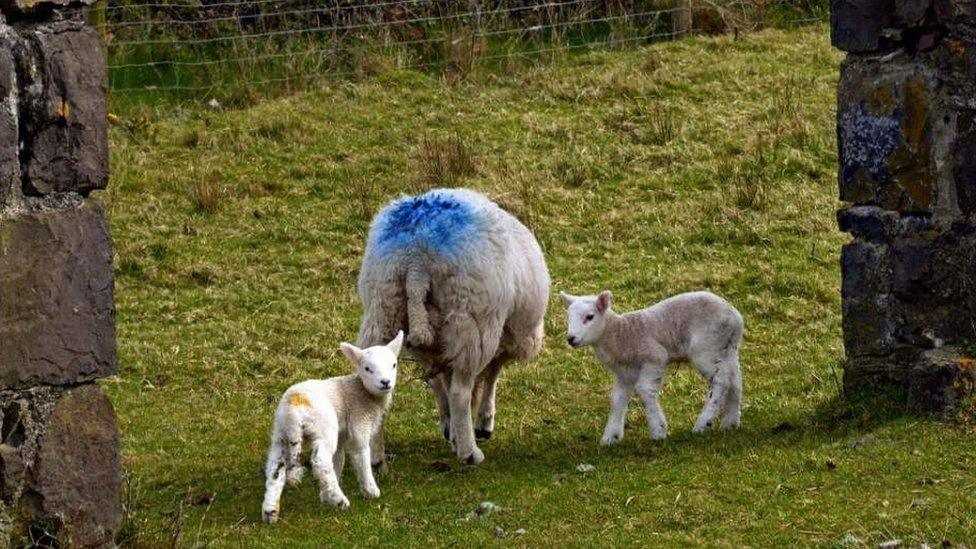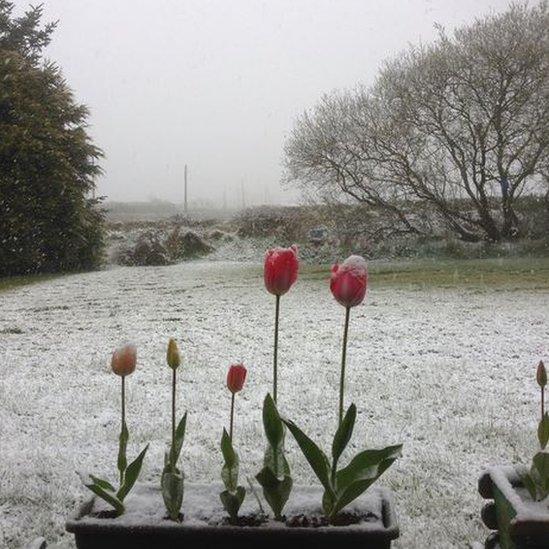Why does our Easter weather vary so much?
- Published

This century, Easter Sunday has been as early as 23 March in 2008 and as late as 24 April in 2011
It's more likely to snow at Easter than at Christmas.
After last weekend and earlier in the week, that may may not come as a surprise.
However, this Easter looks like being close to a scorcher at least for part of the weekend.
So why does our weather vary so much at this time of year?
The main reason is wind direction - where our air is coming from.
If winds are from the north, their source will be towards the Arctic, which is surrounded by a very cold sea.
If winds are from the south they are coming from Spain and Africa, which are starting to warm up.
Strengthening sun
We live on an island surrounded by ocean and sea temperatures in our neck of the woods are lower in March and April than in December.
This means that when our weather comes from the north or west it moves over cold water sucking up moisture from below creating clouds and potentially rain or snow.

If the air is from a cold source and there is a noticeable wind, the chilling effect on the skin can be extreme
Cold air combined with rising temperatures over the land are the ideal ingredients for heavy showers hence the term April showers.
And if the air is cold it can easily lead to wintry showers - snow, hail, sleet or thundersnow.
Sunshine in spring is crucial as to how the air feels.
The Sun strengthens quickly during April and in a suntrap it will feel warm, regardless of what the thermometer reads.
But if the air is from a cold source and there is a noticeable wind the chilling effect on the skin can be extreme.
It's a bit like being on top of the Alps surrounded by snow - the air is cold otherwise the snow would melt - with blue sky, sunshine and no wind.
The Sun feels warm on your face but any wind would make the weather feel Baltic.
This is known as wind chill, and the wind-chill temperature is how the air feels on bare skin.
BBQ weather?
The other thing to consider, of course, is that Christmas is fixed and Easter moves around the calendar.

When our weather comes from the north or west it moves over cold water sucking up moisture from below, which can lead to snow
This century, Easter Sunday has been as early as 23 March in 2008 and as late as 24 April in 2011.
It's no shock, then, that the coldest Easter weekend was recorded when Easter was early.
Good Friday 2013 saw the Antrim Glens record a maximum temperature of just 1.7 degrees on 29 March.
This Easter weekend we gain sunshine, lose the cold easterly wind, which originated over Scandinavia, and our air starts to drift in from France and Spain, sourcing back to the Mediterranean.
So we move from windburn and continuous "huddle" weather to t-shirts, shorts and possible sunburn.
Time to clean off the barbecue and sample al-fresco dining, even if it's just a coffee in the garden.
Happy Easter - don't let those chocolate eggs melt!